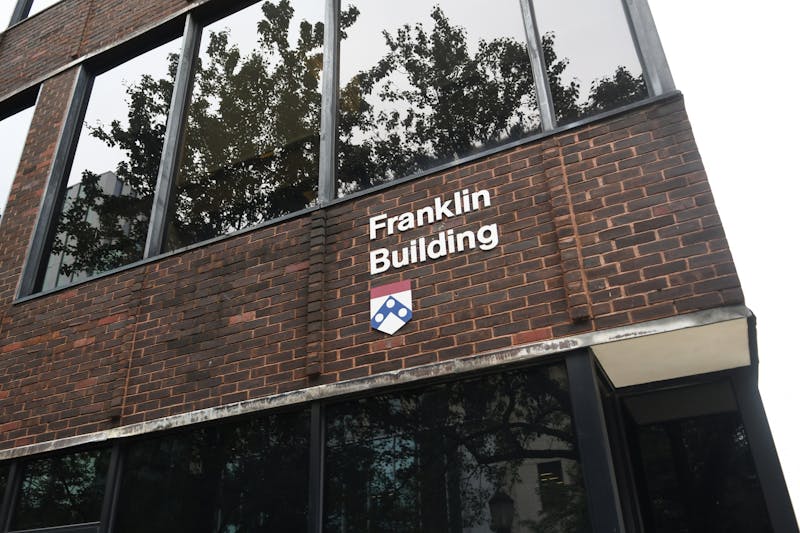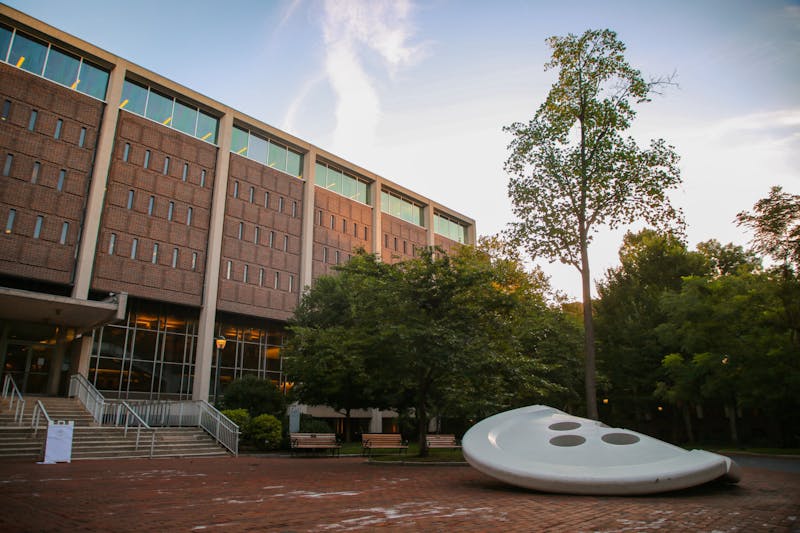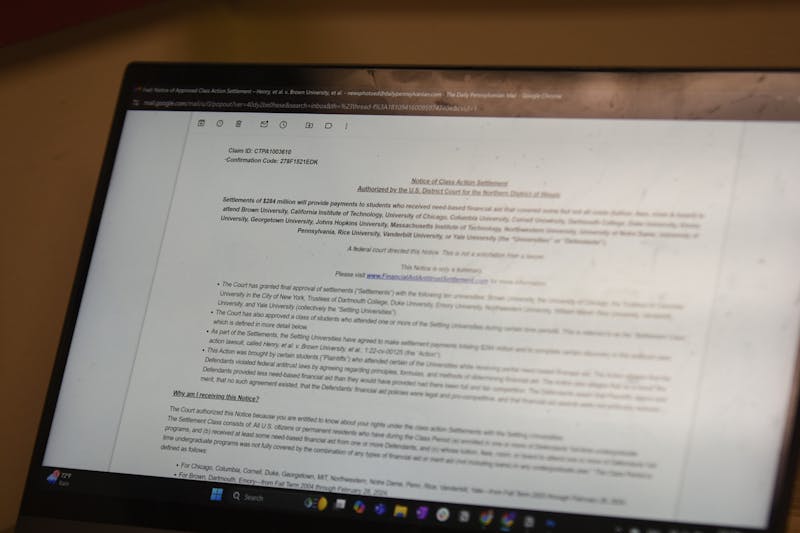
At the height of the COVID-19 pandemic in 2020, Penn froze hiring, furloughed workers, and cut program budgets. It also issued then-President Amy Gutmann a $3.7 million home loan.
The University's loan to Gutmann – which was disclosed in the University’s tax filings and Gutmann’s ethics disclosures to become the United States ambassador to Germany – appears to rival the largest-ever loan issued to a college administrator in the Ivy League, according to an analysis by The Daily Pennsylvanian. The DP previously reported that the same tax filings showed that Gutmann received $23 million in compensation during the final year of her presidency, likely a record single-year payout to a university president.
Penn's loan to Amy Gutmann was the largest issued to an Ivy League administrator in fiscal year 2021
According to Gutmann's ethics disclosures, the loan was issued in October 2020 at the federal mid-term rate of 0.38% and has a term of nine years or the termination of Gutmann's tenured professorship at Penn.
In the same month that the loan was issued, Gutmann said that she would take a pay freeze rather than a pay cut in light of the COVID-19 pandemic, when four other Ivy League presidents took pay cuts of 20% or more.
“In 2020, the Trustee Compensation Committee approved an employee loan for President Gutmann consistent with University policy and applicable laws and regulations to assist in her post President transition,” Board of Trustees Chair Scott Bok wrote in a statement to the DP. “The University, like many peer institutions, has from time to time made loans to senior leaders in order to attract and retain the best available talent in key positions.”
A spokesperson for the University declined to share the written loan agreement or minutes of the meeting where the loan was approved by the Compensation Committee.
Gutmann resigned the Penn presidency in February 2022 after she was confirmed as United States ambassador to Germany and since then has been on a leave of absence from her tenured professorship at Penn. In response to a request for comment directed to Gutmann, the U.S. Department of State referred the DP to Penn.
"Pursuant to written policy, the University grants leaves of absence for employment elsewhere for up to two years," Gutmann wrote in her ethics disclosures to the U.S. Office of Government Ethics in 2021. "If the University extends my leave of absence past two years so that I may continue to serve as Ambassador to Germany, I will refinance the loan with a different lender, pay market rate for the remaining period of my government service, or pay off the loan."
Multiple experts that spoke with the DP said that universities commonly issue home loans to top administrators for retention purposes, often in the earlier stages of the hire. They said that more public information was necessary to determine whether the loan issued to Gutmann was fully appropriate, though it is not illegal.
"[$3.7 million] is a large amount, even for the wealthiest charities," Notre Dame School of Law professor Lloyd Hitoshi Mayer said. "And often university presidents are provided with housing by the university, particularly the more elite universities."
As president, Gutmann was contractually obligated to live in the President's House, known as Eisenlohr, located at 3812 Walnut St. Mayer added that the size of university loans issued for home purchases is typically associated with the cost of the home but could also cover furnishings and related expenses.
According to Philadelphia property records and Zillow, a 5,000-square-foot home in the Fitler Square neighborhood of Center City was purchased under the name of Michael Doyle, Gutmann's husband, for $3.6 million in December 2020. The address is the same as the address listed in Gutmann's voter registration records.
Mayer said that universities typically issue home loans to deans and other senior officers as part of their compensation package, to help them purchase houses when they begin their tenure — especially at universities in expensive real estate markets. In addition to Gutmann, Penn currently has two $150,000 loans issued to Penn Nursing Dean Antonia M. Villaruel and Graduate School of Education dean Pam Grossman before she left office in July.
The purpose of Gutmann's loan was initially listed as "retention" in the University's tax filings for fiscal year 2021 and as a "special employee loan" in the same filings for fiscal year 2022. It was issued during the 16th year of her presidency and had increased to a balance of $3,714,060 as of Penn's most recent tax filings.
"It's less common, in my experience, that this happens that there's a general loan as this one appears to be to the officer without ties, for example, to buy the house when they first take the job," Mayer said. "But it does happen."
Glenn Colby, the senior research officer in the department of research and public policy at the American Association of University Professors, said a home loan "can be viewed as an investment" of the University's money.
"A university the size of Penn has an endowment, and they have to decide, what are our investments?" he said. "In this case, it appears that they said, for one investment, would we give a large loan to [Gutmann]?"
Colby added that the nine-year term of the loan matches what limited research has typically observed for loans issued by universities to professors.
Separately from issuing home loans to University officers, the Office of Penn Home Ownership Services offers an application for financing for home purchases and renovations in West Philadelphia. According to the office’s website, over 1,400 employees and families have participated in the program.
"It's definitely not a good look," Colby said. "It's like why, why are they giving her a loan that massive? And then she left two years after she got the loan."
While Colby said it was positive that Penn reported the loan in its tax filings he said he would expect minutes of the meeting where the loan was approved to be available to the public.
"The public information raises a lot of fair and legitimate questions that need to be answered about the specifics of the actual loan agreement with the University," Dean Zerbe, a former senior tax counsel on the United States Senate Committee on Finance who has conducted oversight of loans to charitable officers, said.
The Daily Pennsylvanian is an independent, student-run newspaper. Please consider making a donation to support the coverage that shapes the University. Your generosity ensures a future of strong journalism at Penn.
Donate











